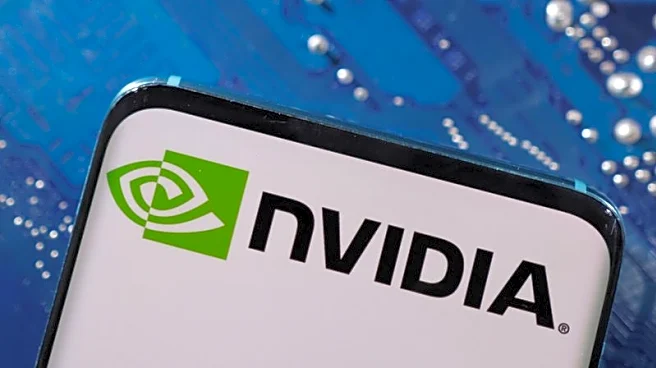(Reuters) -Chipmaker Nvidia will invest up to $100 billion in OpenAI, the companies said on Monday, a tie-up between two of the highest profile leaders in the global artificial intelligence race.
Companies
worldwide are pouring hundreds of billions of dollars into securing and expanding capacity for powerful cloud computing required to develop and power complex AI technology.
The two companies signed a letter of intent for a landmark strategic partnership to deploy at least 10 gigawatts of Nvidia chips for OpenAI's AI infrastructure.
They aim to finalize partnership details in the coming weeks, with the first deployment phase targeted to come online in the second half of 2026.
"Everything starts with compute," OpenAI CEO Sam Altman said in a statement.
"Compute infrastructure will be the basis for the economy of the future, and we will utilize what we're building with Nvidia to both create new AI breakthroughs and empower people and businesses with them at scale."
Nvidia shares were up 3% while shares of Oracle , which partners with OpenAI, SoftBank , and Microsoft on the $500 billion Stargate AI data center project, gained nearly 5%.
Nvidia's investment comes days after it committed $5 billion to struggling chipmaker Intel.
OpenAI and its backer Microsoft also announced earlier this month that they have signed a non-binding deal for new relationship terms that would allow for OpenAI's restructuring into a for-profit company.
Nvidia also backed OpenAI in a $6.6 billion funding round in October 2024. The world's most valuable firm making another sizeable investment in OpenAI could lead to antitrust scrutiny.
The Trump administration has taken a much lighter touch on competition issues compared to President Biden's antitrust enforcers.
In June 2024 the Justice Department and the Federal Trade Commission reached a deal that cleared the way for potential antitrust investigations into the dominant roles that Microsoft, OpenAI and Nvidia play in the artificial intelligence industry.
(Reporting by Arsheeya Bajwa in Bengaluru; Editing by Tasim Zahid and Anil D'Silva)









